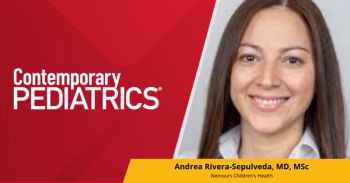
Ideal cardiovascular health in childhood linked to lower chronic disease risk in adulthood
Childhood cardiovascular health is crucial for lifelong benefits, enhancing cognitive, metabolic, and mental well-being while reducing disease risks.
Optimal cardiovascular health (CVH) beginning in childhood is associated with lasting benefits that extend beyond cardiovascular disease prevention to include cognitive, metabolic, and mental health advantages, according to a systematic review published in the Journal of the American Heart Association.1,2
The review, conducted by researchers at Ann & Robert H. Lurie Children’s Hospital of Chicago and Northwestern University Feinberg School of Medicine, evaluated nearly 500 studies from 2010 to 2021 that used the American Heart Association’s Life’s Simple 7 (LS7) framework. This construct includes 4 health behaviors—diet, physical activity, smoking avoidance, and sleep—and 3 clinical metrics: body mass index (BMI), blood pressure, cholesterol, and blood glucose.
“Childhood is a unique window where keeping these cardiovascular health metrics in optimal ranges will have a long-term benefit to all body systems, not just the heart,” said Amanda Marma Perak, MD, MSCI, senior author of the study and pediatric cardiologist at Lurie Children’s Hospital. Marma Perak emphasized the role of early lifestyle routines and regular clinical assessments in optimizing CVH from a young age.
The systematic review included 483 studies, the majority of which demonstrated a low prevalence of ideal CVH, even among children. Only 0% to 4% of individuals across studies achieved all 7 metrics at ideal levels, with somewhat higher prevalence among adolescents. Despite the low baseline, adherence to CVH metrics was consistently associated with reduced risk for cardiovascular disease (CVD), stroke, dementia, cancer, diabetes, chronic kidney disease, depression, and other chronic conditions.
The findings also suggest a dose-response relationship between higher CVH scores and reduced morbidity and mortality. Individuals with ideal CVH had significantly lower risk of incident CVD events, subclinical atherosclerosis, and all-cause mortality, while showing improved cognitive function, mental health, and physical performance measures in later life.
Importantly, the review highlights that the benefits of CVH can begin before birth. One included study found that adolescents were nearly 8 times less likely to have poor CVH if their mothers maintained high cardiovascular health during pregnancy. “Cardiovascular disease prevention can start even before conception,” said Marma Perak, who was the lead author on that study.
To support optimal CVH, the review encourages parents to focus on health-promoting behaviors. “Parents can focus on the 4 health habits—setting up their child’s daily routines to include a healthy diet, plenty of physical activity, and protected time for sleep, and then making clear their expectations about not smoking or vaping as the child gets older,” said Marma Perak. “For the 4 clinical factors, parents can check in with the pediatrician at each well child visit to make sure that their child’s BMI, blood pressure, cholesterol, and blood sugar levels are on track for a healthy future.”
Despite the robust data on CVH outcomes, the review identified significant research gaps. Few studies evaluated interventions to improve CVH in youth or during pregnancy. Additionally, mental health—an emerging determinant of CVH—was underrepresented in the literature. Only 8 studies examined psychological well-being, despite its observed association with better CVH outcomes.
The authors call for more research targeting social determinants of health, environmental exposures, and community-based strategies to promote CVH from early life. “Early prevention is key to a healthy adulthood,” said Marma Perak. “If parents are concerned about their child’s risk factors for heart disease, the Preventive Cardiology Program at Lurie Children’s can help set kids on a healthier path.”
References:
- Aguayo L, Cotoc C, Guo JW, et al. Cardiovascular Health, 2010 to 2020: A Systematic Review of a Decade of Research on Life’s Simple 7. Journal of the American Heart Association. Published online July 16, 2025. doi:https://doi.org/10.1161/jaha.124.038566
- Ann & Robert H. Lurie Children's Hospital of Chicago. Optimal heart health in children cuts risk of chronic diseases in adulthood. EurekAlert. July 16, 2025. Accessed July 16, 2025. https://www.eurekalert.org/news-releases/1091131
Newsletter
Access practical, evidence-based guidance to support better care for our youngest patients. Join our email list for the latest clinical updates.








